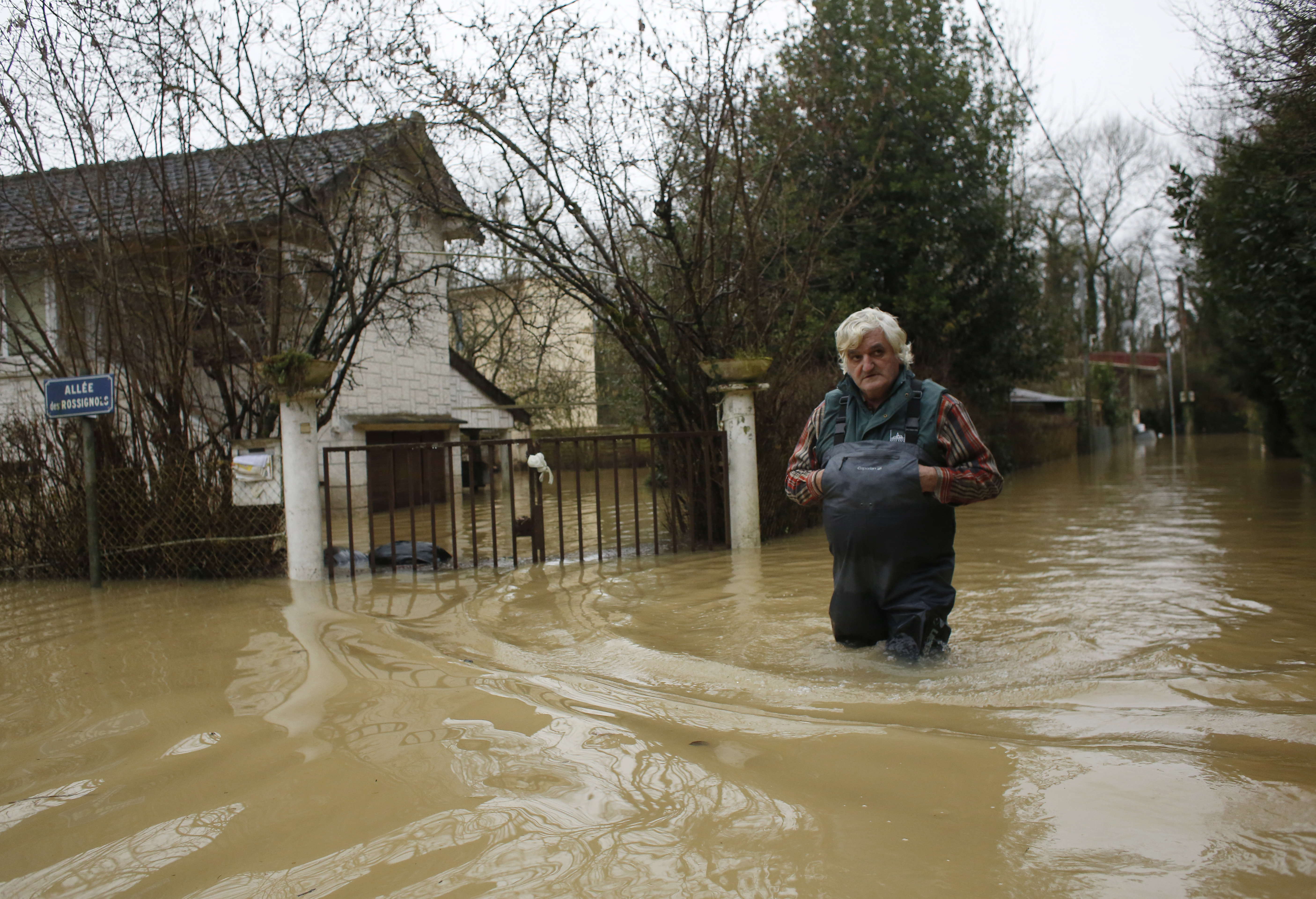
By SAMUEL PETREQUIN
Associated Press
PARIS (AP) — Parisians remained largely unfazed Friday as the Seine River continued to rise and approach peak levels. The Paris region has been deeply affected by the floods that hit the country over the past week, but in the capital city, it was business as usual for the most part. The Seine will hit its peak soon, but without surpassing record levels, according to Vigicrues, the body in charge of monitoring flood levels.
The Seine reached 5.60 meters (more than 18 feet) Friday morning at the Austerlitz bridge in eastern Paris. It was expected to keep rising, reaching a peak of six meters (20 feet) over the weekend. That’s under the 6.2 meters the Seine reached two years ago, and far below the levels reached during the 1910 Great Flood, when the Seine water rose to 8.62 meters (more than 28 feet).
While the 2016 floods led to the death of two people and left several injured in the Paris area, no victims have been recorded during the current episode of flooding.
Paris authorities have closed several tunnels, parks, and the bottom floor of the Louvre Museum as precautionary measures. Roads on the river banks have been closed, as well as seven train stations alongside the river, but the moves didn’t cause major disruption in the City of Lights.
On a cold Friday morning, a small group of bystanders gathered at the Pont de l’Alma to admire and take pictures of the Seine’s muddy waters. Just in front of the bridge close to the tunnel where Princess Diana was killed in a car crash stands the Zouave. It’s a statue representing a soldier from the Crimean War, which is used by Parisians as a reference point to measure the Seine’s level.
By midday Friday, the Zouave had water up to its thighs.
“I’m here to take pictures and souvenirs,” said Marc Bernard, a 59-year-old man who was born in Paris and witnessed several other floods. “I wouldn’t say it’s spectacular, but it’s a special atmosphere. It’s nice to watch the waters running faster.”
Only a few Paris residents have been forced to leave their homes on the Seine riverbanks. The manager of a building on the right bank in the west of the French capital said he had the ground-floor windows boarded up after residents lost most of their belonging in the 2016 floods.
“The first residents left three days ago and yesterday or the day before. Everybody was gone here,” said Joao De Macedo. “They put everything up on concrete blocks.”
De Macedo said he had noticed the water was also making its way into the building through the cellar’s floor and was penetrating the walls.
The situation is far more difficult outside Paris. Exceptionally heavy rains have caused power outages and forced about 400 evacuations from homes elsewhere on the Seine after it and other French rivers burst their banks.
The floods caused significant damage in the suburbs. They will also have an economic impact on the businesses operating boats on the Seine, since all river traffic has been banned until further notice.
Anthony Huard, who organizes floating parties on a boat moored in the suburb of Boulogne-Billancourt, said much of his activity has been halted.
“Since the start of the year I have only been able to host just two events, instead of 10 normally,” he said.
The Organization for Economic Cooperation and Development said the 2016 floods in the Seine and Loire basins had a negative impact on the economy worth 1.42 billion euros ($1.8 billion). According to projections, a flood comparable to the 1910 Great Flood could cost damage costing between 3 billion euros ($3.7 billion) and 30 billion euros ($37 billion).















